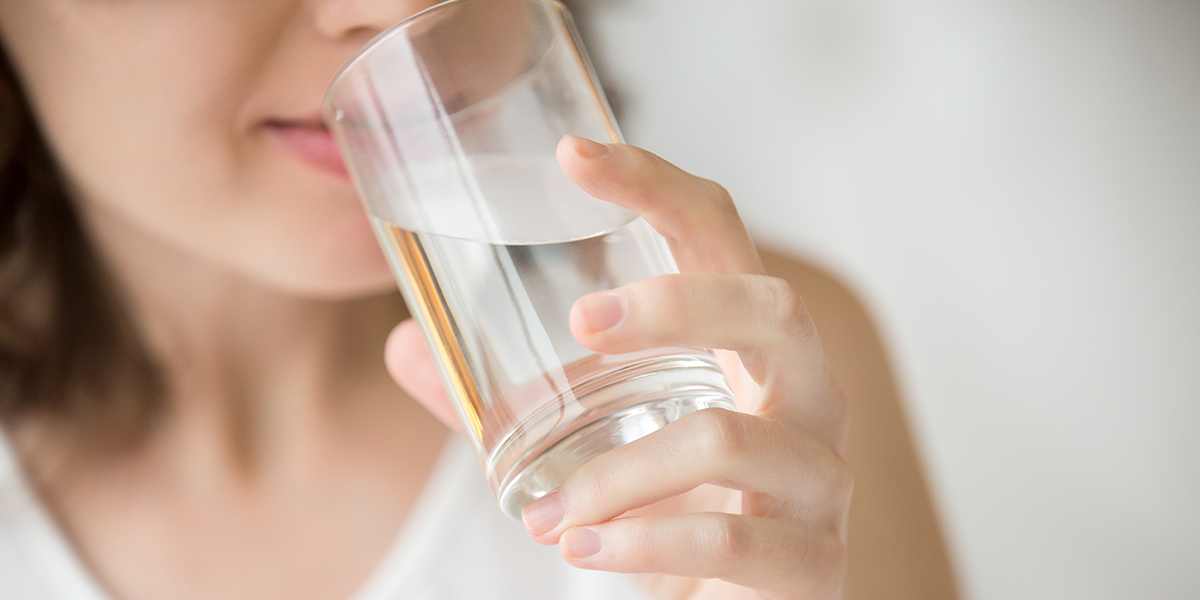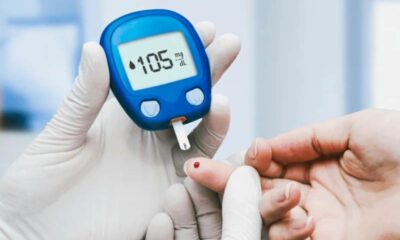Staying hydrated is crucial for overall health, but it plays a particularly important role in managing blood sugar levels. For those with diabetes, prediabetes, or anyone looking to stabilize their blood sugar, proper hydration is an essential, yet often overlooked, component of a healthy lifestyle. This article delves into how hydration affects blood sugar, why it’s crucial for diabetes management, and tips for maintaining optimal hydration levels.
1. The Connection Between Hydration and Blood Sugar
- Understanding Blood Sugar Basics: Blood sugar, or blood glucose, is the sugar present in your bloodstream that comes from the foods you eat, especially carbohydrates. The body uses this sugar for energy, with insulin helping to move it from the bloodstream into cells.
- How Hydration Affects Blood Volume and Concentration: Proper hydration ensures an adequate blood volume, helping to keep blood sugar concentration balanced. When you’re dehydrated, your blood volume decreases, leading to a higher concentration of glucose in your bloodstream.
- Kidney Function and Hydration: The kidneys play a major role in removing excess glucose from the blood. When you’re well-hydrated, your kidneys can function efficiently, filtering and removing glucose through urine when levels are high.
2. Dehydration and Blood Sugar Spikes
- How Dehydration Can Lead to Higher Blood Sugar: Dehydration reduces blood volume, concentrating blood sugar levels and causing blood glucose to rise. This is especially concerning for people with diabetes, as it can lead to hyperglycemia.
- Stress Hormones and Dehydration: Dehydration can trigger the release of stress hormones like cortisol, which may increase blood sugar. This adds another layer of complexity for those managing diabetes.
- Symptoms of Dehydration: Discuss common dehydration symptoms (thirst, dark urine, dry mouth, dizziness) and how these can overlap with diabetes symptoms, making it essential to monitor both hydration and blood sugar levels.
3. The Role of Hydration in Diabetes Management
- Preventing Hyperglycemia with Hydration: Drinking water can help prevent or alleviate high blood sugar by diluting the bloodstream and aiding in the kidneys’ natural filtration process.
- Assisting the Action of Insulin: Proper hydration helps insulin function more effectively, allowing glucose to move from the bloodstream into cells where it’s needed for energy.
- Avoiding Diabetic Ketoacidosis (DKA): For people with type 1 diabetes, dehydration increases the risk of diabetic ketoacidosis, a serious condition where blood becomes acidic. Staying hydrated is crucial in preventing DKA.
4. Scientific Studies on Hydration and Blood Sugar
- Research Findings on Water Intake and Blood Sugar: Studies have shown that individuals who drink adequate water have a lower risk of developing high blood sugar levels and, subsequently, diabetes. Discuss key studies and findings that connect hydration with reduced diabetes risk.
- The Link Between Water Intake and Insulin Resistance: Research indicates that drinking water may help reduce insulin resistance, a condition where the body’s cells don’t respond properly to insulin, leading to higher blood sugar levels.
- Hydration’s Influence on Hunger and Cravings: Studies also show that staying hydrated may help control appetite and reduce sugar cravings, which can indirectly help manage blood sugar levels.
5. Best Practices for Staying Hydrated
- Daily Water Recommendations: Most health experts recommend about 8 glasses (64 ounces) of water daily, though needs can vary based on age, activity level, and individual health factors.
- Factors Affecting Hydration Needs: Activity level, weather, diet, and individual health conditions all play a role in hydration requirements. People with diabetes may need more water to help manage blood glucose levels.
- How to Monitor Hydration: Simple methods like checking urine color (clear to light yellow is ideal) and assessing thirst levels can help ensure you’re staying hydrated.
6. Other Fluids: What Helps and What Hurts?
- Good Fluid Choices: Besides water, herbal teas, infused water, and vegetable-based soups are great ways to boost hydration without adding excess sugar.
- Fluids to Avoid: Sugary drinks, including sodas and juice, can raise blood sugar levels quickly, leading to further dehydration. Alcohol, while it may not raise blood sugar directly, can interfere with blood sugar management.
- Caffeine’s Role: While coffee and tea in moderation are generally fine, caffeine can have a diuretic effect, increasing urine output and potentially leading to dehydration if consumed excessively.
7. Tips for Making Hydration a Habit
- Set Hydration Goals: Aim to drink a glass of water with every meal and snack and keep a water bottle handy throughout the day.
- Infuse Flavor for Variety: If plain water isn’t appealing, try adding slices of lemon, cucumber, or mint to add flavor without adding sugar.
- Using Technology: Many smartphone apps can help track water intake, send reminders, and monitor hydration levels.
8. Common Hydration Myths and Misconceptions
- Only Water Hydrates: While water is ideal, other fluids and water-rich foods like fruits and vegetables also contribute to daily hydration.
- You Only Need to Drink When Thirsty: By the time you feel thirsty, you’re likely already slightly dehydrated. Consistent hydration throughout the day is key.
- Hydration Doesn’t Affect Blood Sugar: Hydration plays a significant role in maintaining blood sugar balance, and ignoring it can complicate blood sugar management.
9. Hydration and Blood Sugar for Athletes and Active Individuals
- Special Considerations for Physical Activity: Physical activity, especially in hot weather, increases hydration needs. Active individuals should take extra care to stay hydrated to support both blood sugar and energy levels.
- Electrolytes and Hydration: For intense exercise or high temperatures, electrolyte-rich drinks can help replace lost minerals without adding sugar, making them beneficial for blood sugar management.
10. Key Takeaways and Actionable Steps
- Hydration as Part of a Healthy Routine: Emphasize the importance of hydration as a cornerstone of managing blood sugar. Proper hydration supports kidney function, insulin efficiency, and helps prevent high blood sugar levels.
- Making Hydration a Priority: Summarize key tips, such as drinking water consistently throughout the day, avoiding sugary drinks, and monitoring hydration status.
Conclusion
Proper hydration is a simple yet powerful way to help manage blood sugar levels. For people with diabetes, staying hydrated aids in balancing blood glucose, supporting insulin function, and reducing the risk of serious complications like hyperglycemia and DKA. By making hydration a daily priority, anyone can enhance their overall health and better support their body’s natural blood sugar regulation. Remember to consult with a healthcare professional if you have specific hydration needs, especially if managing a health condition like diabetes.

 Diabetology2 weeks ago
Diabetology2 weeks ago
 Diabetology1 week ago
Diabetology1 week ago
 Diabetology5 days ago
Diabetology5 days ago
 Diabetology6 days ago
Diabetology6 days ago
 Diabetology6 days ago
Diabetology6 days ago
 Diabetology3 days ago
Diabetology3 days ago
 Diabetology3 days ago
Diabetology3 days ago
 Diabetology1 day ago
Diabetology1 day ago








